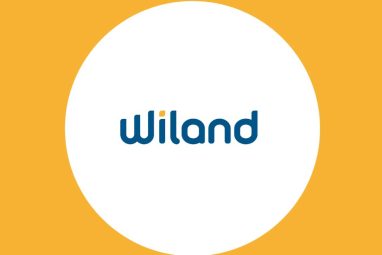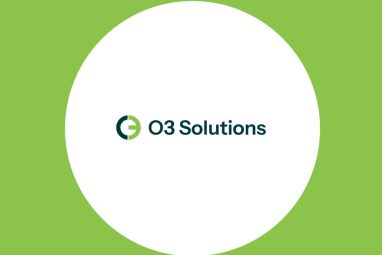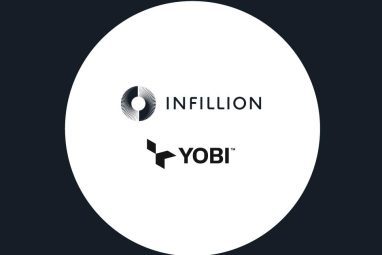New Intent Lab Study Finds that Giving Consumers Exactly What They Ask For Is Not Enough for Advertising Performance
By tailoring advertising only to specific consumer needs, brands are making ads less useful and missing out on sales, according to new research from Performics, Northwestern University and Microsoft Advertising Hyper-relevancy is now prevalent in digital advertising, but may be backfiring for many brands according to a new study by the Intent Lab, a research […]
Topics
What to Read Next
- Wiland Launches MarketSignals Custom Personas
- Parloa Secures $350M Series D, Valued at $3B to Lead Agentic AI in CX
- O3 Solutions Introduces Otto, a Personal AI Assistant for Capital Project Teams
- Infillion, Yobi Partner to Advance AI-Powered Advertising Optimisation
- VIOOH Partners with Atmosphere TV to Expand Premium DOOH Inventory
By tailoring advertising only to specific consumer needs, brands are making ads less useful and missing out on sales, according to new research from Performics, Northwestern University and Microsoft Advertising
Hyper-relevancy is now prevalent in digital advertising, but may be backfiring for many brands according to a new study by the Intent Lab, a research collaboration between Performics and Northwestern University Medill School of Journalism, Media, Integrated Marketing Communications, in partnership with Microsoft Advertising.
In this study, titled Overlooked Opportunity of Goal-Driven Consumers, the Intent Lab and Microsoft Advertising undertook an online experiment of 2400 U.S. consumers that examined whether being relevant to specific consumer needs is too limiting.
Marketers strive for relevance, but is relevance only about providing consumers exactly what they ask for?
Can marketers provide more assistance by predicting what else consumers may need to achieve their broader goal?
The research examined the likelihood of consumers to select a search ad result based on their mindset (Goal-Driven or Item-Driven) and the type of ad experience (Limited vs. Expanded).
A Goal-Driven mindset is when the consumer has a goal in mind (e.g. build muscle) which can require a variety of products and services (e.g. protein powders, yoga mats, healthy recipes, gym memberships) to attain.
An Item-Driven mindset entails a specific product or service that the consumer is directly looking for.
Also read: Embrace Automation or Get Left Behind, Urge eCommerce Leaders
A Limited ad experience is when the consumer sees specific ads based on an Item searched, while an Expanded experience includes ads associated/related to the Item searched, but not yet specifically asked for.
The study found that:
- More than 50% of consumers are in a Goal-Driven mindset. While repeat purchasers search with an Item in mind (e.g. buying the same protein powder every month), new consumers to a category or brand are more likely to be in a Goal mindset. Brands have a 26.7% higher chance of finding a new customer when targeting the Goal mindset vs. targeting the Item-Driven Mindset.
- Currently, no matter the mindset, most brands show consumers Limited ad results targeted to specific queries. But, 54% of Goal-Driven searchers continued to search, because they didn’t find what they were looking for. Consumers who are newer to the category are particularly unsatisfied with the digital ads they see (35% satisfaction for new customers vs. 43% satisfaction for consumers with average familiarity and 53% for experts).
- When presented with an Expanded set of ad results with associated products related to their goal in the ad mix (vs. Limited), consumer perception of usefulness of ads increased by 10%
- New consumers are 1.9X more likely to click on an ad for an associated product/service (vs. consumers with average familiarity with the category) and 3.8X more likely to click than experts in the category
“The Intent Lab study clearly shows that brands are missing out on new customers,” says Esteban Ribero, Performics SVP of Planning and Insights.
“As marketers, we’ve been chasing the concept of relevance by trying to give consumers exactly what they ask for, which is not wrong, but also not enough to be truly assistive as a brand.”
“Consumers want and need more from us. We need to go beyond what is asked to what else might be related to the consumer’s goal.”
Kelli Kemery, Market Research Manager at Microsoft, added, “Many brands are overlooking the potential of Goal-Driven consumers.”
“Brands shouldn’t wait for searchers to ask them for a specific item; our research proves that the majority of searchers have a variety of things in mind that could contribute to their goal, and are open to ads aligned to that goal.”
“More importantly, consumers are clearly signaling that they’re open to trying new brands and products in a Goal-driven mindset, which we wouldn’t want to miss out on.”
“Of course brands need to deliver relevant search results. However, relevance can mean different things for different people, and brands may be overlooking valuable opportunities to offer relevant products.”
“Our study shows that including an associated or related product within the search experience aids consumers in reaching their overall goal, and drives higher satisfaction with digital experiences,” said Ashlee Humphreys, Associate Professor at Northwestern Medill.
For brands to bring these findings to their media strategies, Ribero recommends, “For consumers in an Item-Driven mindset, give them what they want, but also highlight associated products within your search, social and native site experiences.”
Also read: SAP Launches SAP Customer Data Platform to Enable Enterprises to Meet the Customer in the Moment
“For Goal-Driven consumers, predict all the ways you can help them achieve that goal by testing a variety of experiences, showcasing associated products and bundles of products. “
“Most importantly, don’t overlook the value of Goal-Driven search queries, which is where you will find new users to the category, one of the most powerful sources of growth.”
Download the full Intent Lab, Overlooked Opportunity of Goal-Driven Consumers, for more insights.
About Performics
As the original performance marketing agency, Performics is the premier revenue growth driver for many of the world’s most admired brands. Across an expansive global network operating in 57 countries, Performics leverages data, technology and talent to create and convert consumer demand wherever it is expressed—search, social, display, commerce and offline channels. Performics is built for the relentless pursuit of results. Headquartered in Chicago, Performics is a Publicis Media company and the performance marketing engine of Publicis Groupe. Demand Performance. To learn more, visit https://www.performics.com.









































































































